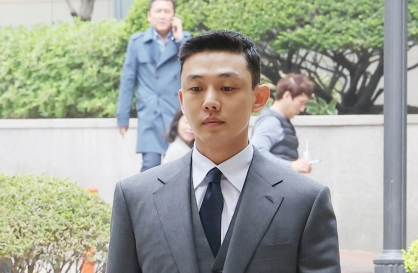[Kim Seong-kon] Competition begins from birth in Korea
By Korea HeraldPublished : March 20, 2024 - 05:31

Few Koreans would deny that South Korea is a highly competitive society. People say that the competition is so stiff that your child should begin preparing for it as soon as he or she turns three years old. Indeed, parents send their three-year-olds to preschool and private academies for piano, violin or art lessons after school. Then, a little later, English-speaking kindergarten awaits your child. When your child enters elementary school, the competition for college entrance has already begun. Otherwise, your child can scarcely survive, let alone succeed, in Korean society. Some people say that the lifelong competition for Korean children begins as early as in "joriwon" or postpartum care centers.
In The New York Times, Lauretta Charlton recently wrote an intriguing article on Korean joriwon. After giving birth, quite a few Korean mothers choose to stay in joriwon for about three weeks before they go back home with their newborn baby. Customarily in Korea, a mother should stay away from cold water for 21 days in order to recover fully from childbirth. It is quite different from the Western custom where a mother takes a shower right after the birth.
It costs about 8 million to 10 million won, or roughly $6,000 to $7,500, to stay at a high-end joriwon. Medical insurance does not cover it. Yet, new mothers prefer to stay in joriwon where they can receive the best postpartum care. There, a mother can rest and sleep fully in her private room because nurses take care of her baby. Her family, too, can benefit from the break, so that they do not have to be busy taking care of the mother and baby at home for three weeks after birth.
There is another benefit coming from joriwon. In her article, Charlton mentions that joriwon provides an opportunity for new mothers in the same social class to meet and make friends. Their friendship will continue and help their children survive the intense competition at school later by sharing invaluable information and helpful advice. Charlton also points out that getting into their joriwon of choice is extremely competitive, and mothers thus begin sending in “booking requests as soon as they see the double lines on their pregnancy test.” Indeed, it means Korean children’s competition begins as early as in joriwon, just as soon as they are born.
In capitalist countries, competitions exist. However, they are not as harsh and relentless as in Korea. For example, American parents, too, send their children to private preschool or daycare centers when they turn three years old. In many cases, however, it is because both parents are working and thus cannot take care of their children during the daytime, rather than for the sake of competition.
Of course, American parents of higher income enroll their children at well-known preschools such as the Montessori schools. The monthly tuition is around $830 or a little more than one million won, and yet the competition for entrance is very stiff. Once admitted, however, there is no cutthroat competition between peers. Instead of competing with one another, preschool children learn many basic things including public etiquette, while teachers encourage them to think creatively.
Upon graduating from preschool, some American children sign up for a private kindergarten and then a private secondary school, both of which are expensive. After that, their parents may register them at prestigious prep schools such as Phillips Exeter Academy, which functions as a smooth pathway to Ivy League universities, but which is still very expensive.
American parents want to live in a good school district where they can send their children to a prime public school. The problem is that real estate prices of a good school district are very high and so is the school tax imposed on your home. Surely, it is a problem for average or low-income parents. However, it is different from the Korean-style nationwide competition.
In Korea, people think that everybody should be a college graduate regardless of scholastic aptitude or financial status. As a result, approximately 80 percent of high school graduates reportedly enter college in Korea, the highest rate in the world. Naturally, the competition for college entrance in Korea is so sharp that it begins in early childhood. In America, however, if you are not particularly interested in studying or if your parents cannot afford your tuition, you do not go to college and get a job instead. As a result, competition for college entrance in America is not as stiff as in Korea.
College entrance is not everything. It should not be the ultimate goal of our children’s lives, either. Life is precious and there are much more valuable things than college in life. Besides, excessive competition makes our society inhumane and bleak. Instead of stepping on others for our own success, therefore, we should learn to live with others, befriend others and cooperate with others. We do not need to start the competition at joriwon.
Kim Seong-kon
Kim Seong-kon is a professor emeritus of English at Seoul National University and a visiting scholar at Dartmouth College. -- Ed.
-
Articles by Korea Herald









![[Hello India] Hyundai Motor vows to boost 'clean mobility' in India](http://res.heraldm.com/phpwas/restmb_idxmake.php?idx=644&simg=/content/image/2024/04/25/20240425050672_0.jpg&u=)










